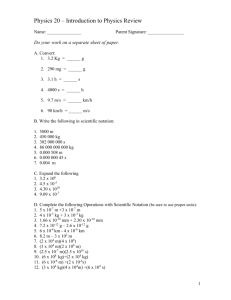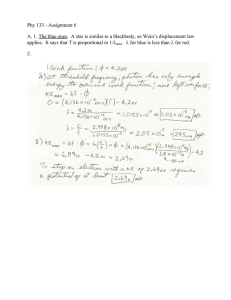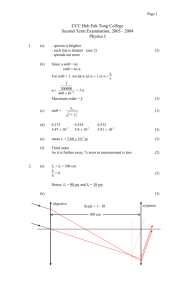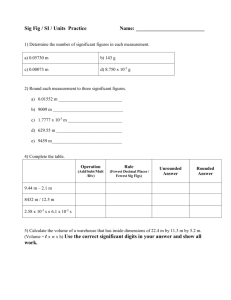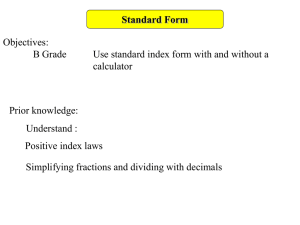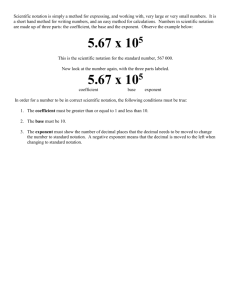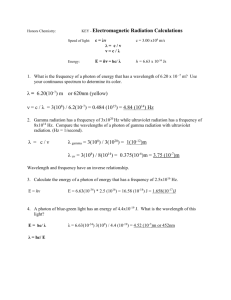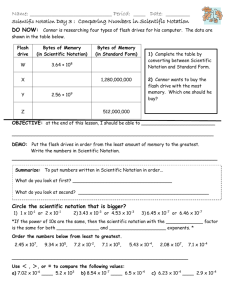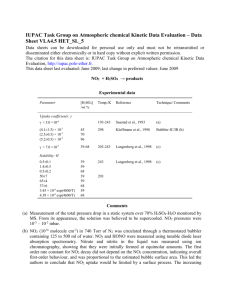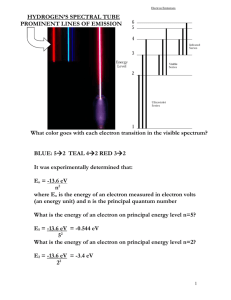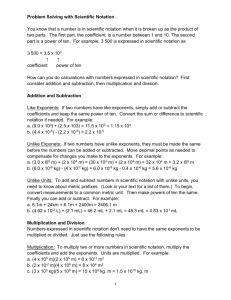Chemical Kinetics: Method of Initial Rates Worksheet
advertisement
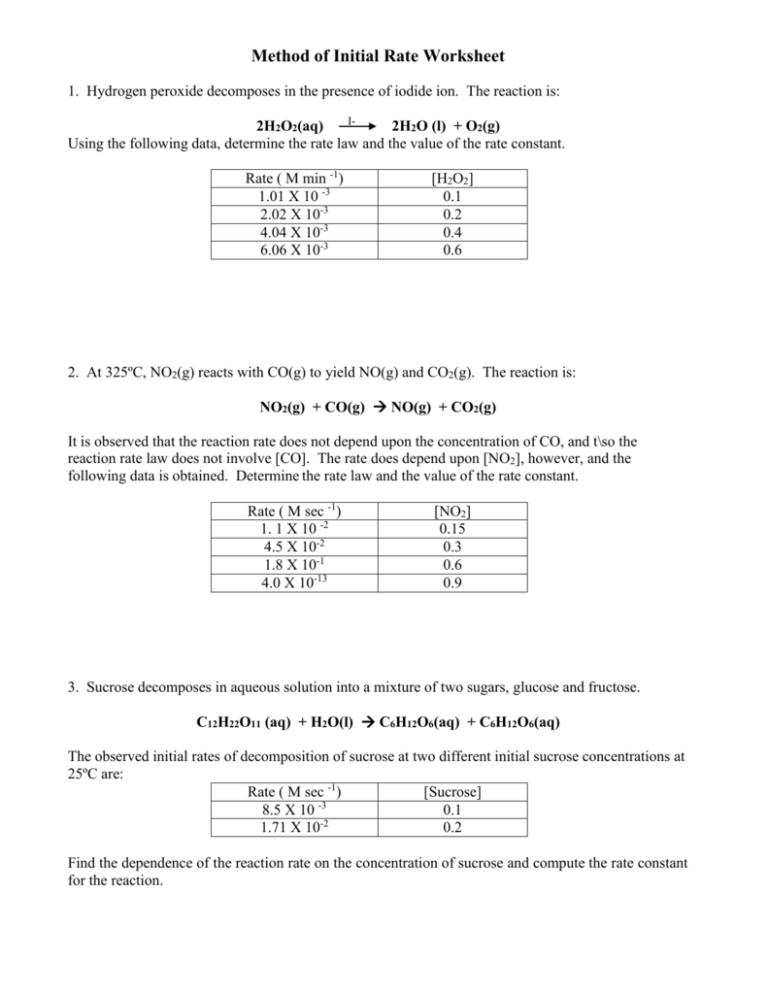
Method of Initial Rate Worksheet 1. Hydrogen peroxide decomposes in the presence of iodide ion. The reaction is: I2H2O2(aq) 2H2O (l) + O2(g) Using the following data, determine the rate law and the value of the rate constant. Rate ( M min -1) 1.01 X 10 -3 2.02 X 10-3 4.04 X 10-3 6.06 X 10-3 [H2O2] 0.1 0.2 0.4 0.6 2. At 325ºC, NO2(g) reacts with CO(g) to yield NO(g) and CO2(g). The reaction is: NO2(g) + CO(g) NO(g) + CO2(g) It is observed that the reaction rate does not depend upon the concentration of CO, and t\so the reaction rate law does not involve [CO]. The rate does depend upon [NO2], however, and the following data is obtained. Determine the rate law and the value of the rate constant. Rate ( M sec -1) 1. 1 X 10 -2 4.5 X 10-2 1.8 X 10-1 4.0 X 10-13 [NO2] 0.15 0.3 0.6 0.9 3. Sucrose decomposes in aqueous solution into a mixture of two sugars, glucose and fructose. C12H22O11 (aq) + H2O(l) C6H12O6(aq) + C6H12O6(aq) The observed initial rates of decomposition of sucrose at two different initial sucrose concentrations at 25ºC are: Rate ( M sec -1) [Sucrose] -3 8.5 X 10 0.1 1.71 X 10-2 0.2 Find the dependence of the reaction rate on the concentration of sucrose and compute the rate constant for the reaction. 4. Given: A + B C [A] 0.1 0.1 0.2 [B] 0.1 0.2 0.1 Rate ( M sec -1) 4.0X 10 -5 4.0 X 10-5 16 X 10-5 Determine the rate law. Calculate the rate constant. Determine the rate when [A] = 0.05 and [B] = 0.10 5. Data for the reaction of ammonium and nitrite ions in water at 25ºC follows. Determine the rate law for this reaction. [NO2-] NH4+] Rate ( M/sec) 0.01 0.2 5.4 X 10 -7 0.02 0.2 10.8 X 10-7 0.04 0.2 21.5 X 10-7 0.06 0.2 32.2 X 10-7 0.2 0.02 10.8 X 10-7 0.2 0.04 21.6 X 10-7 0.2 0.06 32.4 X 10-7 0.2 0.08 43.3 X 10-7 4. Given: 2NO(g) + Br2(g) 2NOBr(g) [NO] 1 2 4 Determine the reaction rate law and the rate constant [Br2] 1 1 2 Rate ( M min -1) 1. 1 X 10 -2 4.5 X 10-2 1.8 X 10-1
